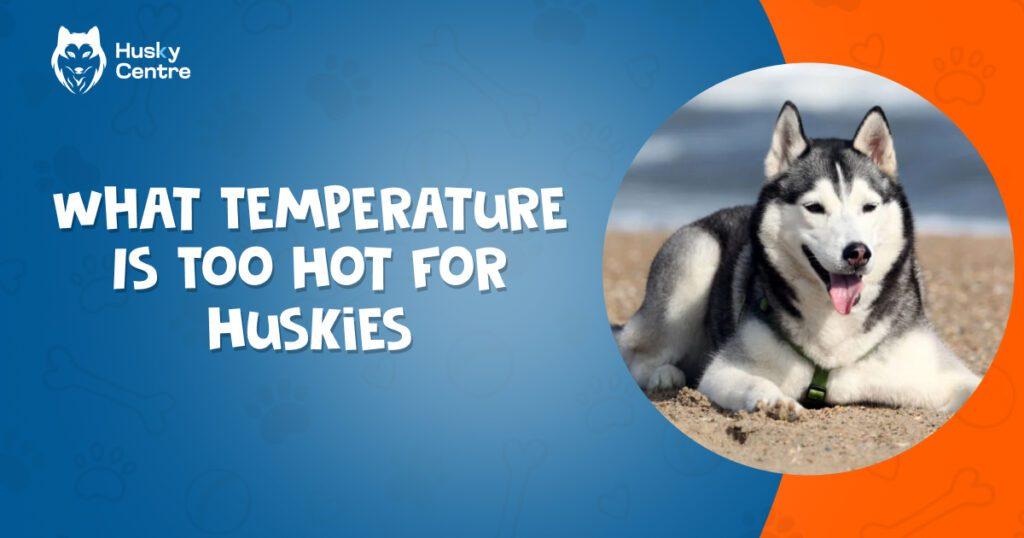Huskies are known for their beauty and energy. But, like any breed, they face health issues.
So, what kind of health issues do Huskies have? Huskies are sturdy dogs with a rich history as sled pullers in harsh climates. Despite their robust nature, they can suffer from several health problems. Understanding these issues is crucial for their well-being.
Some common concerns include eye problems, hip dysplasia, and skin conditions. Recognizing the signs early can help manage these problems effectively. As a responsible Husky owner, it’s essential to keep an eye on their health and seek veterinary care when needed. This ensures your Husky stays happy and healthy throughout its life. Keep reading to learn more about the specific health issues Huskies may encounter.
Common Genetic Health Problems
Huskies are known for their striking appearance and energetic nature. Yet, like many purebred dogs, they are prone to certain genetic disorders. Understanding these common Husky diseases can help in managing their health better. Here, we will discuss some of the most frequent hereditary issues in Huskies.
Hip Dysplasia
Hip dysplasia is a common genetic health problem in Huskies. This condition occurs when the hip joint doesn’t develop properly. Over time, it can lead to arthritis and pain. It is one of the most concerning Husky health concerns.
Symptoms of hip dysplasia in Huskies include:
- Limping or difficulty in walking
- Decreased activity levels
- Reluctance to climb stairs or jump
Veterinarians often diagnose hip dysplasia through X-rays. Treatment options vary based on the severity and can include:
- Weight management
- Physical therapy
- Anti-inflammatory medications
- Surgery in severe cases
Here is a table summarizing the key points about hip dysplasia:
| Aspect | Details |
|---|---|
| Symptoms | Limping, decreased activity, reluctance to jump |
| Diagnosis | X-rays |
| Treatment | Weight management, physical therapy, medications, surgery |
Eye Conditions
Huskies are also susceptible to various eye conditions. These hereditary issues in Huskies can significantly impact their vision and overall quality of life. Some common genetic disorders in Huskies affecting their eyes include cataracts, progressive retinal atrophy (PRA), and corneal dystrophy.
Key eye conditions in Huskies include:
- Cataracts: Clouding of the eye lens, leading to vision impairment. Signs include a cloudy appearance in the eye and vision difficulty.
- Progressive Retinal Atrophy (PRA): A degenerative disease that affects the retina. Symptoms include night blindness and gradual loss of vision.
- Corneal Dystrophy: A condition where the cornea becomes cloudy. It is typically painless but can affect vision.
To diagnose these conditions, veterinarians may perform eye exams and specialized tests. Treatments vary depending on the condition:
- Cataracts: Surgery to remove the cloudy lens
- PRA: No cure, but antioxidants and supplements may slow progression
- Corneal Dystrophy: Regular monitoring, eye drops, or surgery in severe cases
By being aware of these common Husky diseases, you can ensure timely veterinary care and better manage your Husky’s health.
Preventive Care For Huskies
Huskies are known for their strong and energetic nature, but like all breeds, they can face specific health issues. Preventive care is crucial to ensure your Husky leads a long, healthy life. Regular vet checkups, vaccinations, and a balanced diet are essential for preventing health problems in Huskies. Here are some key Husky care tips to keep your furry friend in top shape.
Vet Checkups And Vaccinations
Regular vet checkups are vital for health maintenance for Huskies. These visits help detect any potential health issues early and keep your Husky’s vaccinations up to date. During checkups, vets perform a thorough physical examination, checking your Husky’s eyes, ears, teeth, skin, and overall body condition.
Here are some common vaccinations Huskies need:
- Rabies: Protects against the deadly rabies virus.
- Distemper: Prevents a contagious and serious disease affecting dogs.
- Parvovirus: Safeguards against a highly contagious viral illness.
- Adenovirus: Protects against hepatitis and respiratory diseases.
- Leptospirosis: Prevents a bacterial infection that can affect dogs and humans.
Regular vet visits should include:
- Weight monitoring
- Dental checkups
- Blood tests
- Parasite control
These steps are essential for preventing health problems in Huskies. Keeping a record of your Husky’s health history and vaccination schedule ensures you don’t miss any important updates.
Balanced Diet
A balanced diet is crucial for keeping Huskies healthy. Proper nutrition supports their active lifestyle and prevents many common health issues. Huskies need a diet rich in protein, healthy fats, vitamins, and minerals.
Consider these dietary guidelines:
- High-quality protein: Supports muscle growth and repair. Look for meat-based proteins like chicken, beef, or fish.
- Healthy fats: Provide energy and support skin and coat health. Include sources like fish oil and flaxseed.
- Carbohydrates: Supply energy. Opt for whole grains like brown rice and oats.
- Vitamins and minerals: Essential for overall health. Ensure the diet includes fruits and vegetables.
Portion control is also important in preventing obesity, a common issue in Huskies. Follow these feeding tips:
- Feed based on age, weight, and activity level
- Divide meals into two or three smaller portions
- Avoid overfeeding and limit treats
Providing fresh water at all times is essential. A balanced diet and proper hydration are key Husky care tips for preventing health problems in Huskies.
Lifespan And Aging Concerns
Huskies are known for their vibrant energy and playful nature. But like all breeds, they face certain health issues as they age. Understanding the lifespan and aging concerns of Huskies can help in providing the best care for these loyal companions. Aging in Huskies often brings specific health challenges that owners need to be aware of. Let’s delve into one of the common lifespan-related health problems: arthritis and joint problems.
Arthritis And Joint Problems
As Huskies grow older, they are prone to arthritis and joint problems. These issues can significantly affect their quality of life. Arthritis in Huskies is a common condition that results in inflammation of the joints, leading to pain and discomfort.
Signs of arthritis in Huskies may include:
- Stiffness, especially after resting
- Reluctance to run or jump
- Limping or favoring certain limbs
- Decreased activity levels
Joint problems in Huskies can also stem from hip dysplasia, a genetic condition where the hip joint does not fit into the hip socket properly. This can lead to further arthritis and mobility issues.
To manage these issues, senior dog care for Huskies should include:
- Regular vet check-ups to monitor joint health
- A balanced diet to maintain a healthy weight
- Supplements such as glucosamine and chondroitin
- Gentle exercise to keep joints flexible
- Comfortable bedding to ease joint pressure
Here is a table summarizing common treatments for arthritis and joint problems:
| Treatment | Description |
|---|---|
| Medication | Pain relievers and anti-inflammatory drugs |
| Physical Therapy | Exercises to improve joint function and strength |
| Surgery | In severe cases, surgical intervention may be required |
| Weight Management | Maintaining an optimal weight to reduce joint stress |
Paying attention to these signs and treatments can help improve the Husky life expectancy and ensure they live a comfortable life in their senior years.
Frequently Asked Questions
What Are Common Health Issues In Huskies?
Huskies commonly face hip dysplasia, eye conditions, and skin allergies. Regular vet check-ups help in early detection and treatment.
Do Huskies Have Genetic Health Problems?
Yes, Huskies can have genetic issues like cataracts and progressive retinal atrophy. Responsible breeding minimizes these risks.
How To Prevent Hip Dysplasia In Huskies?
Prevent hip dysplasia with regular exercise, balanced diet, and maintaining a healthy weight. Early vet checks are crucial.
Are Huskies Prone To Eye Conditions?
Yes, Huskies are prone to cataracts and corneal dystrophy. Regular eye exams help in early diagnosis and treatment.
Conclusion
Huskies are amazing pets but can face health issues. Regular vet check-ups help. Stay alert to symptoms like limping or eye problems. Keep their weight balanced to avoid joint stress. Proper care ensures a happy, healthy Husky. Always consult your vet for personalized advice.
Understanding their needs can improve their quality of life. Prioritize their health for a loyal, energetic companion.


Meet Jarred, the heart and soul behind HukyCentre. With a deep affection for furry friends, he pours his passion into every word he writes. His genuine love for dogs shines through in his engaging and informative content. As a dedicated dog enthusiast, Jarred’s goal is to share valuable insights and tips that resonate with fellow dog lovers. Join Jarred on the journey as he celebrates the joy and companionship that dogs bring into our lives.



